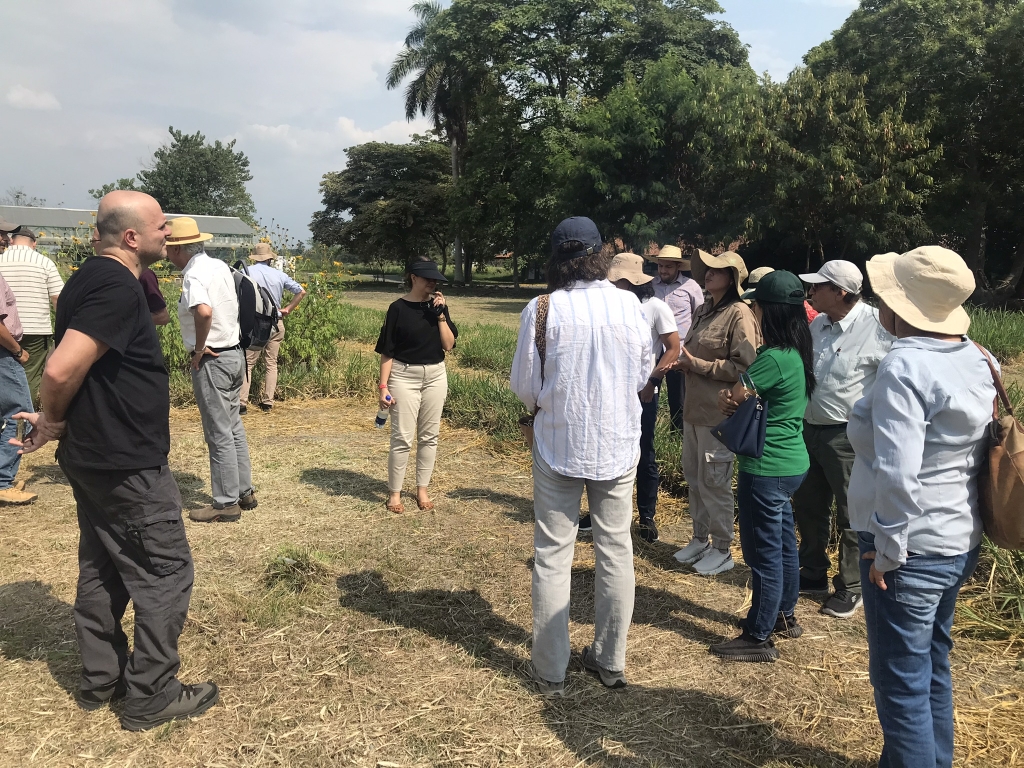At the end of January Will Simonson visited the International Centre for Tropical Agriculture (CIAT) in Colombia to attend a workshop on silvopasture design. This was at the invitation of the team of BioSmart, an interdisciplinary project with UK funding (BBSRC and Newton Fund) and UK researchers joining forces with Colombian collaborators to explore silvopasture based dairy production in the Caqueta department of the Colombian Amazonia. It is hoped that this approach can slow deforestation, helping to support livelihoods as well as biodiversity such as invertebrates and plants, which were a focus of the investigation.

At the two-day workshop we were an international group of about 20 scientists, predominantly from South America. We were presented the results of the project and through a Delphi process, familiar to ORC researchers through our own current and past research, sought to arrive at consensus on the different aspects of silvopasture design that are needed to achieve key outcomes such as dairy products, soil quality and functional biodiversity.
It was a fascinating experience. CIAT, part of the global network of CGIAR centres, is an impressive facility with 1300 researchers, students and staff and many trial fields and glasshouses. It sits within the Cauca valley, one of the most regions for producing commodities such as sugar cane. With over 70% of its population’s food requirements being imported, and high levels of food insecurity, it was another example of the need for radical transformation of our food systems. The challenges in Colombia are many and, if an identified list of barriers to silvopasture adoption in Caqueta is anything to go by, sometimes shared with Europe and no doubt other parts of the world.
